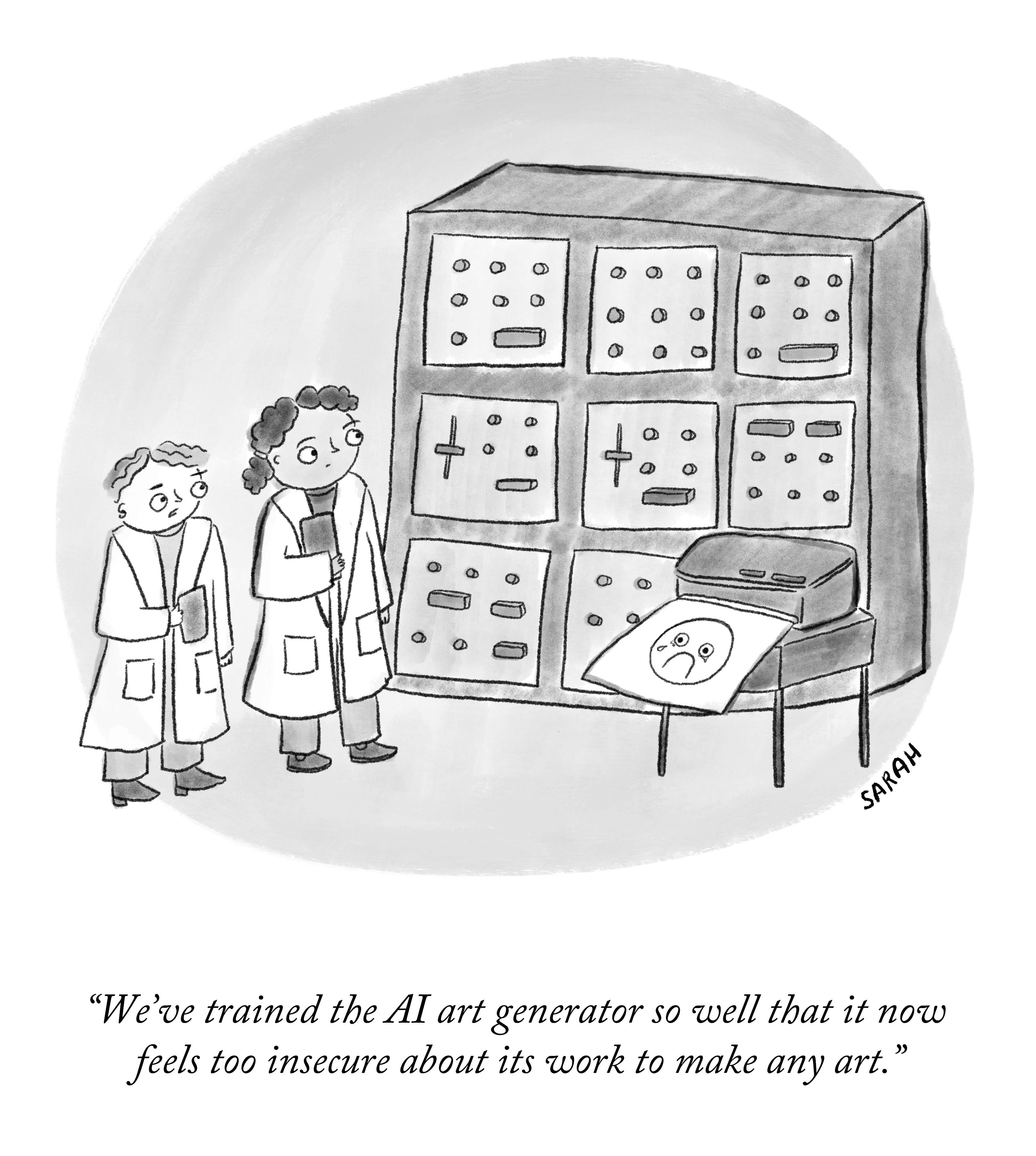It seems that Chatbots and Artificial Intelligence are invading every part of modern life. According to recent news reports, over 80% of Fortune 500 companies have adopted one of the new large language AI models.[1]
Goldman Sachs estimates that AI adoption could enable a 1.5% increase in labor productivity resulting in an increase of 1.1% per year of Gross Domestic Product (GDP – the total value of all goods and services produced by the economy). Given that our GDP normally averages around 2.5%, a 1.1% addition to our average GDP could represent a 40% increase, significantly impacting corporate earnings and market valuations across the economy.[2]
Certainly, AI models can organize, summarize, reconcile, and interpret labeled data beyond human capacity, but can they duplicate the more intangible aspects of human endeavors? These models increasingly mimic human behaviors and beg an intriguing question: are they more than just a better abacus that uses beads to do arithmetic? Given the potential impacts on our lives, let’s delve into some key human qualities to see if AI models can exhibit them.

Many have encountered amusing outputs from AI models, leading some to believe they have a sense of humor. While these models can generate jokes or witty responses, their “humor” is derived from patterns in the data they were trained on. They don’t “understand” jokes the way humans do, nor do they genuinely “find” something funny. A study that asked test humans versus AI models to match over 700 New Yorker cartoons with appropriate captions uncovered that humans were successful over 80% of the time while the AI models struggled to match the correct caption 30% of the time.[3]
Human intuition stems from our ability to draw on subconscious knowledge and experiences. It is more than just pattern recognition; it’s an innate understanding, often without immediate rational explanation. Generative AI models are exceptional at pattern recognition, drawing on vast amounts of data to make predictions. However, they lack the personal, lived experiences that inform human intuition. They can replicate intuitive-like answers based on patterns but don’t possess intuition in the truly human sense.
Humans can be deeply emotional, often driving them to persevere, create, and engage with the world around them. Passion connects to our desires, dreams, and even our very identities. AI models, while sophisticated, don’t have feelings, desires, or a sense of self. Thus, they can’t be passionate about anything. They can generate text that mimics passion, but this reflects the data they’ve been trained on, not a genuine emotion.
While AI can produce art, music, or literature that seems creative by analyzing and replicating patterns, its “creativity” lacks the personal and emotional influences that human creativity is imbued with. AI can impersonate creativity, but it doesn’t initiate creative ideas without direction.
Humans have a nuanced ability to engage in ethical and moral reasoning based on complex matrices of cultural, personal, and situational factors. AI can be programmed to follow ethical guidelines, but the genuine internal struggle and consideration of morality is beyond its capability.
Remorse is an emotional and cognitive response stemming from reflecting on past choices, imagining alternatives, and experiencing feelings of loss or sorrow. AI models don’t have feelings or consciousness, and they don’t possess the capability to reflect on past “decisions” in an emotional sense. While they can be programmed to adjust future predictions based on past errors, this is a matter of optimization, not genuine regret.
In general, generative intelligence models offer astounding capabilities that can often mimic human thought processes and responses. However, when we dissect what it means to be human – encompassing our emotions, intuitions, passions, and reflective capacities – it becomes evident that these models are not truly human. They are tools, exceptional ones at that, which can replicate certain human qualities but without the depth, consciousness, and genuine emotional understanding that defines the human experience. There are both promises and concerns.
After an in-depth look at AI we must ask, can it replicate the voice of our authors? Can you tell whether this article was written by a person or an AI chatbot?
[2] Investment Strategy Group, Goldman Sachs Global Investment Research
Disclosures
This material is solely for informational purposes and shall not constitute a recommendation or offer to sell or a solicitation to buy securities. The opinions expressed herein represent the current, good faith views of the author at the time of publication and are provided for limited purposes, are not definitive investment advice, and should not be relied on as such. The information presented herein has been developed internally and/or obtained from sources believed to be reliable; however, neither the author nor Manchester Capital Management guarantee the accuracy, adequacy or completeness of such information. Predictions, opinions, and other information contained in this article are subject to change continually and without notice of any kind and may no longer be true after any date indicated. Any forward-looking predictions or statements speak only as of the date they are made, and the author and Manchester Capital assume no duty to and do not undertake to update forward-looking predictions or statements. Forward-looking predictions or statements are subject to numerous assumptions, risks and uncertainties, which change over time. Actual results could differ materially from those anticipated in forward- looking predictions or statements. As with any investment, there is the risk of loss.

Today’s most dangerous cyber threats don’t come from hackers breaking into systems- they come from someone convincing you to open the door for...

As investment stewards, we at Manchester Capital seek to preserve, protect, and grow client assets given the prevailing market, economic, and...

The recent swoon in the market could be attributed to confusion and uncertainty around the United States' new tariff and trade policy. The Trump...